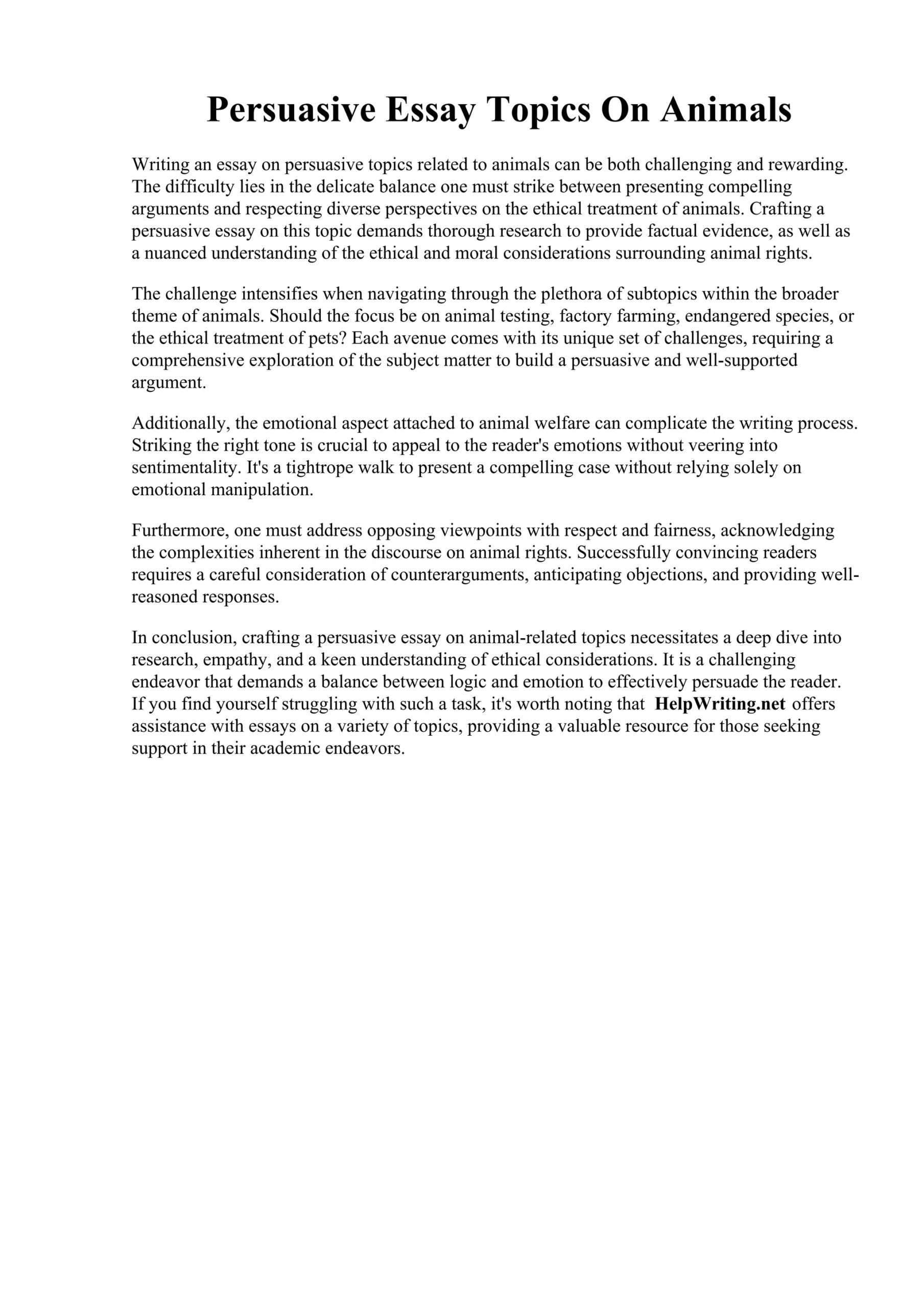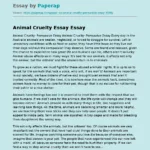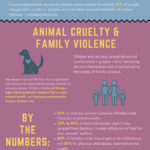Animals occupy myriad roles in human life, from companions to laborers, and their treatment often ignites fervent discussions. This dialogue frequently culminates in debates surrounding animal rights, welfare standards, and ethical usage. Delving into persuasive essay topics about animals unveils not merely the complexity of our relationship with creatures, but also reflects broader societal attitudes towards them. A few poignant topics stand out as catalysts for debate.
One prevalent topic is the ethicality of animal testing. The quest for medical advancements often necessitates experimentation on animals, prompting numerous ethical queries. Proponents argue that animal testing is vital for ensuring safety and efficacy in human medicine. However, detractors contend that subjecting sentient beings to pain for human benefit is inherently wrong, positing alternatives such as in vitro testing and computer modeling. This subject does not just concern laboratory practices; it opens the door to discussions about the value of animal life in the sphere of human interests and technological progress.
Another provocative subject is the nuances surrounding factory farming. The juxtaposition of mass production and animal welfare presents a dichotomy that many grapple with. Advocates for humane farming practices emphasize the importance of humane treatment, arguing that animals raised for consumption deserve a life of dignity. Conversely, supporters of industrial farming often highlight the need for efficiency and economic viability to feed burgeoning populations. This clash not only raises questions about ethical consumption but also intersects with environmental considerations, as intensive farming practices have significant ecological footprints.
The controversial practice of hunting, particularly trophy hunting, also merits examination. While some view hunting as a traditional sporting activity that can contribute to wildlife management, critics argue that it undermines animal conservation efforts. The philosophical divergence here is quite stark: is hunting a necessary component of ecosystem management or an egregious violation of animal rights? The implications of this debate extend to conservation funding and the socio-economic conditions of local communities, making it a multifaceted issue.
Dive deeper into the world of companion animals, and the conversation shifts to how pet ownership intersects with ethical obligation. A prevalent notion is that adopting pets from shelters is superior to purchasing them from breeders. Advocates for shelter adoptions argue that millions of animals face euthanasia each year due to overpopulation; thus, choosing to adopt is a moral imperative. On the flip side, some argue that certain breeds require specialized care, prompting concern for the well-being of pets sourced from less-than-ideal environments. This topic intersects with discussions on abandonment, breeding ethics, and responsible ownership.
The subject of wildlife conservation takes center stage in another significant debate. The preservation of natural habitats and endangered species poses complex questions. There are those who advocate for a hands-off approach to wildlife, stressing the need to let ecosystems balance themselves naturally. Others argue for more direct intervention to help endangered species recover. The ethical implications become even more pronounced when discussing whether human activities warrant direct reparation efforts, such as species reintroduction programs. This discourse elucidates the responsibilities humans bear towards ecosystems that have been disrupted by their own endeavors.
Moreover, the role of animals in entertainment serves as a contentious issue for many. The depiction of animals in circuses, aquariums, and zoos raises questions regarding the trade-off between entertainment value and the well-being of the animals involved. Advocates for banning such practices argue that animals ought to live in environments that reflect their natural behaviors, while opponents may claim that responsible institutions provide education and conservation benefits. This disparity of views not only highlights societal values but also raises inquiries about speciesism, the assumption of human superiority over animals.
Further complicating the narrative are the legal frameworks in place to protect animals. The inadequacy of current animal welfare laws in many regions often spurs debate on necessary reforms. Some argue that existing legislation is sufficient but poorly enforced, while others contend that comprehensive laws are essential for safeguarding animal rights. The implications of these discussions resonate across industries, impacting farming regulations, laboratory practices, and companion animal welfare. Analyzing these laws uncovers underlying societal attitudes towards animals and the moral obligations society is willing to accept.
In addition to these discussions, the concept of vivisection forces a critical reevaluation of the line between scientific progress and ethical integrity. This practice, often considered an archaic method of scientific investigation, raises profound ethical dilemmas and often incites outrage among animal rights advocates. A perusal of historical and contemporary methodologies in scientific research invites a reevaluation of what constitutes acceptable experimentation.
Ultimately, the variety of persuasive essay topics surrounding animals not only ignites passionate debates but also offers a window into humanity’s evolving relationship with the animal kingdom. Engaging with these topics encourages a deeper understanding of ethical considerations intertwined with progress and tradition. By examining these discussions from multifaceted perspectives, one gains clarity on what truly constitutes humane treatment of animals in a world where their rights and roles continue to be debated.










